Behold the man of today: Massified and made plastic. Deterritorialized and deracinated, he is ever more but an empty vessel. He lives in a perpetual crowd wherein solitude is prohibited and loneliness is enforced. He submits to digital abasement on the false hope of closing gaps which his manner of life itself makes unbridgeable. He accepts an easy world of falsehood in the place of everything vital, living, powerful.
His ‘great men’ – to the extent that we can suffer the ridiculous pretense that such men now exist – all affect being common, and we see here an important truth. Commonness is the quality which defines the man of today, it is his highest value. This of course to the extent that he has values at all; for in general it is rather ‘his’ values, market values, that have him.
But why? Because even those called the greatest among men today are slaves to the petty dictates of modern man’s last sacred temple, the market. There are no masters anymore among men; all are servants first to this necropolis. Every edict which is still respected has its origin here; the only categories the man of today sees are the categories of the market. And so the son of the magnate simulates the common man, and the young girl, born high or low, packages and sells herself as any commodity. No act, great or otherwise, may be done except that which is consonant with the superstitions of man’s last temple.
Massified and Made Plastic
‘Neither Greek nor Jew’, the man of today is less than any race before him: he is Mass Man. He is common to a terminal degree. All particular identifiers are impediments to his full utilization by the market, and so are verboten. All differences in the Mass must be ignored and quietly deleted. Mass Man must now be a liquid thing with no particularities or clefts, capable of shifting here or there as the market demands. Any history of place or people this man may still possess must be aborted.
What could frustrate the desires of that dead temple more than the man who still feels he belongs to some people? The man for whom there is a ‘we’ which does not include the entirety of the Mass? Such affinities promote furcations in that which must for utility’s sake be whole, undifferentiated. The market cannot bear these, or any other, scruples. That which is particular and promotes an unequal cohesion is troublesome; the Temple requires reductionism for its formulations to function. Unequal cohesions make for a troublesome liquid. A man must be Man, and no more.
The man of today must get along with all people, he therefore must be always a stranger. Only when he is but an atom can he move in the liquid mass. See the modern city wherein a multitude of individuals with no shared sense of value or history or anything else live cheek by jowl. They share no purpose other than market purpose. The lack of messy bonding agents permits the easy flow of men into the vessels of capital.
‘If a people is to maintain itself, it must not value what its neighbours value.’ And so all people are abolished simultaneously as all values which are not market values are abolished.
And what use have we today of a homeland? What use is there today of a love of particular place? It can only be a stumbling block for the new god. Affinity or adhesion to this place or that only serves to prevent Man from being swirled first here and then there as labour and wage concerns require. It is not enough for man to be without bonds of kin, he must also be a mercenary, venal, a careerist. He must be willing immediately to forsake any fidelity to the place his grandparents were buried, to sell his life wherever the getting is best.
And the man who knows and loves a land? What use is he who feels woe and regret when he sees it covered in asphalt and shopping centres? Better to rip Man from here to there throughout his little life, so that he never comes to know and love any place, never learns a place’s forests and trees and rivers and mountains. Thus he will be untroubled by their mutilation. He must not be allowed to maintain fidelity to something higher, grander than market imperatives. Every place is the same to him and so he tolerates the process by which all places are made equally hideous.
Deprived of the material factors which for prior generations gave man’s life shape, meaning, boundary, the man today is provided with an easy pacifier. He has no people, no place, and so he is sated with a simulacrum thereof on electronic communication networks. This is the pathetic state to which his sense of ‘community’ has sunk.
A grand mass of these illusory groupings are gathered around the celebration of the commodity itself. In lieu of anything truly binding or particular, man shares with his false friends over electronic networks his delight in consumer products, available to every one the world over. He is, too, celebrating his depersoning, his atomization and his own existence as a mass and as a commodity.
This speaks nothing yet of the ways in which he, like a marketing agent, is compelled to market himself, to sell himself to his peers. Among a near infinite mass of other humans interacting on such networks, this is his only method of distinguishing himself, reduced as he is by his distillation into a collection of information. And so the arcane and broken logic of his Temple has possessed him ever more profoundly.
There are then groupings dedicated to airing various grievances against the state of things, but these function primarily as escape valves, airing out some of the rottenness which must fester in such a society. It is all the better that these networks by definition cannot foment the formation of anything meaningful outside of a mere digital spectacle. No: let it be clear that the market only tolerates the existence of these ‘communities’ insofar as they are harmless to the smooth functioning of market imperatives. Were this to become untrue, swift action would be taken against them.
And so the man, become Man, has everything vital taken from him and is contented with mere images and spectacle. He is a dead thing, a helpless thing, an automaton, arrayed against life and cut off from greatness.
Arrayed Against Life
There exist many, undoubtedly the majority, who celebrate this order of things, who call this Progress and worship it as such. These are agents of death, the soldiers of nothingness. They would have everything vital and life-loving in man desiccated from him.
Heretofore all overcoming, all increase in the strength of life has come from profusion, excess and excessive lust for life and power. A profusion of forms, species, races, peoples, ideas arising and struggling for existence, for their own persistence. Here they are set against each other, here they are in harmony. Here one preys upon the other – but look! the wolf gives the doe her speed, and all are made the better in consequence. This elementary impulse is the fundament of all life, all power, all things great. To deny this compulsion is to deny life itself, it is to be in opposition to life.
What could be more indicative of the scorn of life than the self-renunciation involved in Mass Man’s atomization? He must deny all blood ties, and all those ties to the land which begat him. The one who loves life must love himself, must love that which is like him. Gratitude is his quiescent state and so to be him, in his existence, must be what is called good. He therefore esteems what is most like him, prefers the brother to the foreigner. On a long enough time line, the alternative is suicide. Man today is compelled to behave and feel in ways which are anti-natural, which run contrary to those impulses and imperatives that made his existence at all possible.
Having no land which is his, the man of today is a vagabond. He can be everywhere and belong nowhere: he is rootless, a floating thing. But how can anything great ever grow, if not off of some piece of solid ground?
And as for the sum of all this alienation, what end can it have but to make man into something which is only a living thing by technical definition? To make men flat, receptacles, unit shifters? This Mass Man has no place, no kith or kin, he is only a tool for something which is not alive at all, for something base and revolting and petty, a facilitator of market exchange. Gone is his warmth, his vitality, his sense of his rightful place in the cosmos; he is only an economic ideal. He is something living possessed by something dead, a casualty of a monomania begat by a people which is losing the ability to maintain any true and higher values.
Until now all peoples erected for themselves, to the extent that they triumphed and survived, values which empowered them, glorified them. These were for them like a holy star, guiding them towards the horizon, blessing them. As for our society, it fell prey to a wicked nihilism. We tore down all of our myths and gods, believing we had outgrown them. But nature hates a vacuum, and that void in the heart of our civilization was soon filled up again with the base, venal and always present valuations of the merchant; and so his god and his temple now reign. But his is a dead god, and his star is not a star which leads us into any horizon or glory. We shall not be raised to new heights by these things but rather made low and flat in the service of something dead.
The New Temple
If there were still some men left who wished not to be pawns in the destruction of all things which previously have anointed man and all life, what would they look like? How would they migrate from their current state of atomization to something glorious, beautiful? Can a man beautify himself amidst Man?
A glance at the past is instructive in ways, but history is a river we cannot stand in twice. Let no one suffer any illusions about going back. Even if such were possible – and it is not – man would still have to proceed forward from the past, leading him once more by the same path inexorably to the present. Yes, the present condition is a trial to be overcome. In so doing man will have again ascended from the land of the dead, more glorious than ever before.
The reduction of man, his transformation into a denier of his own existence, is part and parcel of his existence as a mass. He is not of the clan, folk or people, but merely a mass. This mode of existence carries within it a necessary reinforcing ideology. A Gordian knot is formed, a social complex of infrastructure, structure and superstructure which self-reinforces and perpetuates itself. There is no loose end to begin unravelling.
Grand attempts to escape the temple of liberalism have all failed to produce any meaningful difference over time. Their experimentations were never fundamental enough. In the end they produced facsimiles of the liberal, and soon enough fell to its sway.
The first imperative is to reconcile ourselves as a people. This is already being done to a large extent and is the secret engine of the new rise of vital movements on the Right. This is the ideological front line and all manner of struggles flow from it. Our only hope is that this leads from ideological inertia to real structural development. After all, this is how the countervailing force came to dominate and restructure Western life and attitudes: by ideological and propaganda pressure funded hugely by bourgeois interests. This is the beginning. From the simple notion that we are each a part of a people, a family, all manner of illiberal attitudes must result: the love of the self and what is like the self, in-group preference, duty, honour and ultimately the affirmation of life, existence self. This one attitude is poison to that poison called Mass.
It remains here to note a trifling issue which somehow plagues this particular notion in its cradle. How do we draw the line of inclusion, how do we determine the ‘in group’ and the ‘out group’? This however is no matter whatsoever and we must not think in the ways the mass thinks. It is not one circle with an ‘in’ and an ‘out’ but rather a series of concentric circles, all of them significant. Any member of any clan would easily answer in this way: what is most like me and what strengthens me most, this is what we shall henceforth give preference to. Let this end this silly diversion for good.
Yes: to become a people with a place. This is fertile ground where something less sickly can grow. Where who a man is, what he is, becomes part and parcel of his lived existence. The whole is integrated into the component. Contrast this with the various ways we are now beckoned to slice ourselves up into meaningless slivers. Where ‘communities’ now mean interests groups of strangers centred on shared appreciation of this or that cultural commodity or vanity. Our ties must be to what strengthens us, bolsters us – not to what spreads us thin and deprives us of our vivacity and colour. Anyone in the world can love this or that television programme or movie, but how many can truly know and love a river? A forest? It is in their effusive particularities that cultures distinguish themselves and become vital, in the same way that manifold groups within a single species may over time blossom into ten thousand different forms.
It may be objected to all of the above that the author has relied much too heavily on similes referencing nature – but this is for good reason. If we are to be any thing whatsoever, the world ‘as nature’ (as if there were a world which is ‘not nature’), the wild places, must be our native idiom. If we are to be giants we cannot also be people of newspapers, markets and other petty squabblings. Such are strangling fetters which can only serve to stunt our growth. The wild places must above all be our sacred grounds, our new temples. Amid the glory of the milky way,1 in the majesty of ancient forest, in view of vast mountains, here we must find our context and our blessings from heaven. Anything less is a millstone on the human spirit and an ignominy.
In the wild places we find a jubilation of struggle, triumph and failure. We find the beauty and necessity of suffering, excess, waste and death, for we find there the fruits and flowers of all cruel necessities. Here we find life, true life, together with its own affirmation of itself. Man is here connected by kinship to both heaven and the earth, at home in his whole existence.
The destruction of such places, justified by wholly venal considerations, is evidence enough of the incessant spiritual death and void of man today. These ‘developers’ and similar desecrators, these are the money-changers in our temples and they must be destroyed if we are to save ourselves. For, what does one find in the vast modern shopping centres and subdivisions they leave in their wake? An incitation to life, greatness, triumph, heroism? No, only a looming, nagging emptiness, a vague supposition of meaninglessness. This is the legacy of such sacrilege.
If man is to have a life at all worth living, which lends itself to the remarkable, it must be a whole life, wholly integrated with him and his time, place and relations. Any alternative is an effective dissection for the benefit of market concerns and social chaos. I have attempted here a brief survey of the dire situation in which man now finds himself, presented from his perspective.
The man of today finds himself (if he pays any attention at all to the genuine social aspect of his existence) in a situation which is indeed bleak and sordid. This modern world does not inspire the silence of reverence or sonorous jubilant singing praise. Rather it begs the nagging question: ‘What for?’ What more vicious incrimination could exist, what more damning indictment could be made than that a living thing finds such cruel doubt to be so ubiquitous that it has become a banality? This is the nature and enormity of this dismal zoo, that bequest of liberalism.
This state of the modern man is an engineered calamity. In order that we might dwell in a calamity which is less disastrous, less moronic and far more preferable, we must know the taxonomy and genealogy of the current catastrophe. More than that, though, more than any formula or critique, is needed a new temple, a new accord between ourselves and our world, our existence. One which emboldens us and aims us higher, refreshes continually our love and lust of life, strength and power. One which reminds us ever more of our place within and kinship with the cosmos. Besides this there is only tacit spiritual suicide, the act of lazing about in a meaningless stupor until something more vital comes along to destroy us.
References
1As the man says: ‘So long as you still see the stars as something “above you” you still lack the eye of the man of knowledge.’
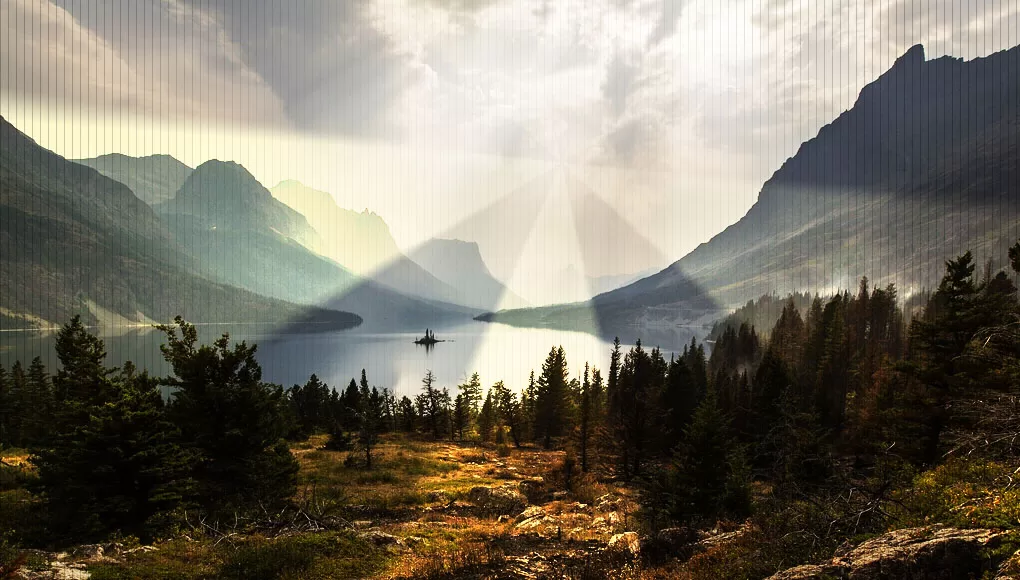


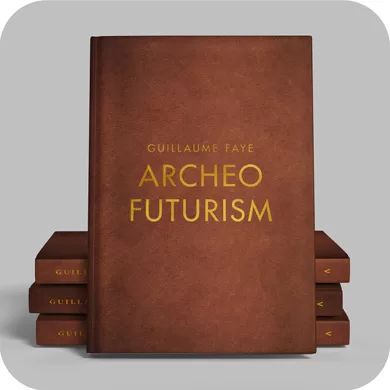

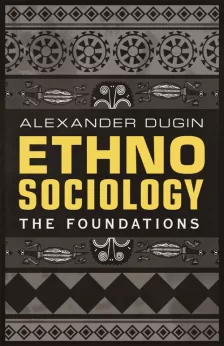

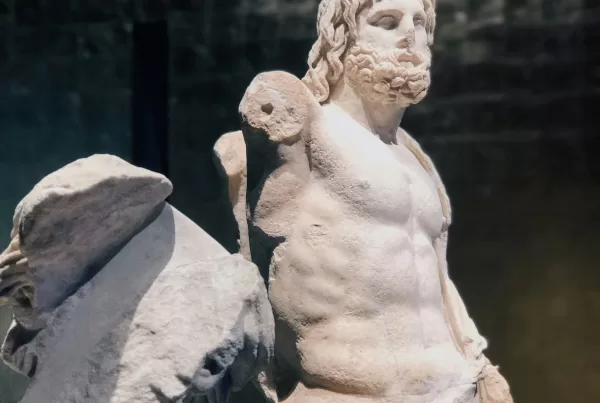

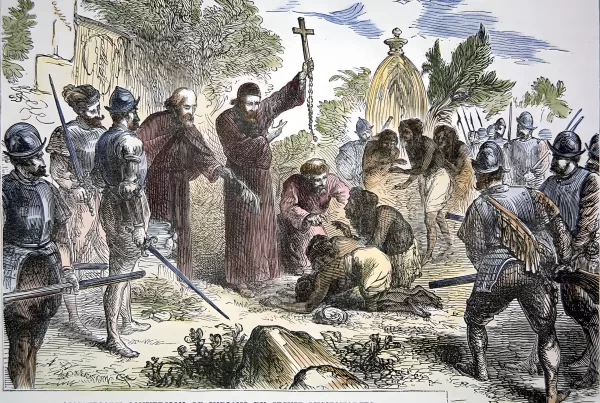
Among the best writing I’ve ever seen.
Yes, my immediate feeling of this was of long-form poetry that sings to the soul.
Very reminiscent of the early essay Philosophia Mortis
The writing is superb.
There are ingredients of nostalgia for something lost or a wish to be elsewhere.
We are invited to perceive the market (present) in a particularly negative way.
But the past (our fathers) gave us the market.
The tension found in now longing for a moment (the past) in which men longed for this moment (market) is not easily resolved.
The market is imperfect (as is all earthliness). But it is by far the most effective satisfy-er of earthly needs and wants that any man has so far generated (consider the impoverished life of the average European prior to 19th c. or the decrease in poverty in India and China over the last several decades). The BEST earthly time to live so far is NOW. To look at ANY time in the past as better is to idealize and ignore what made men create the present.
We will never escape the “engineered calamity” without engineering another. It is a necessary ingredient of earthliness.
The trick is not to grasp tightly to earthliness but to live in it without being of it. Buddha, Socrates and even the late bloom of Jesus all saw this as the key. It is to invade the earthly with the unearthly. Let the market take care of itself.
From, “the man of today”.